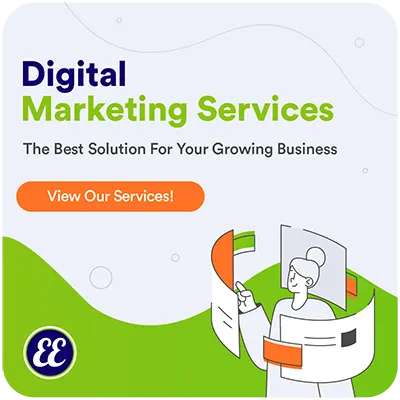In business, we are all going to make mistakes. Some are epic and some go unnoticed. Unfortunately, Wix made an epic mistake that was noticed by many.
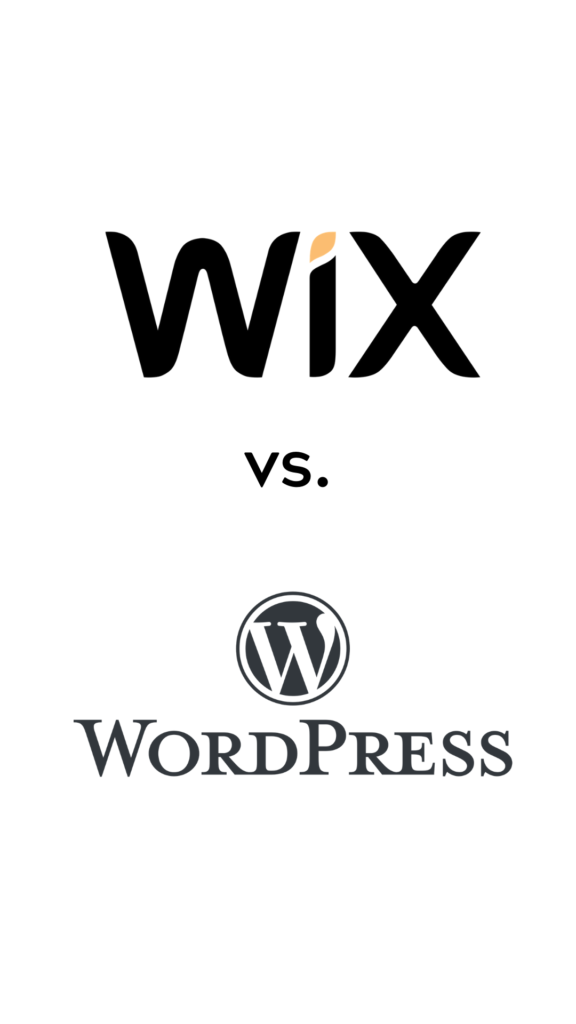
Table of Contents
Early in April 2021, Wix launched an ad campaign against WordPress — and it failed, and boy did it fail.
(Spoiler alert: Wix should have used inbound marketing. Keep reading to find out how adopting an inbound marketing strategy can bring your business to the next level.)
It all began in December 2019. Wix began using negative advertising to discredit WordPress’s standing in the industry by sending WordPress influencers a free pair of Bose headphones.
It makes sense how this idea bubbled to the surface. People are all sitting around a conference table (or a Zoom meeting) throwing out ideas and someone says, “Hey, let’s send these WordPress people Bose headphones. What could go wrong?”
“They’ll be so wowed by the headphones that we’ll get their attention. And then we tell them all the reasons why WordPress is the worst.” And then everyone in the conference room, or Zoom call, collectively nods their heads in agreement and then they move on to the next issue. Maybe air high fives happened. We’ll never know for sure.
Just a few months after the Bose headphones stunt, Wix launched into an even more aggressive negative advertising campaign against WordPress. And it didn’t go down as well as they hoped it would.

How are your marketing efforts contributing to your company’s growth?
Schedule a brief discovery call to receive a complimentary consultation for your business.
Why Wix’s Campaign Failed
We’re going to discuss a few reasons why Wix’s campaign against WordPress failed, and what Wix could have done differently.
Although negative advertising sometimes works, there is more of a downside than upside potential. And, more often than not, your audience might actually start to think less of you than the company you’re targeting with the negative campaign.
Your competitor can turn into the underdog, and have your audience start rooting for them instead of you. This is the complete opposite of what you want to happen. We want people to root for your success!
What Did Wix Actually Do?
Wix’s Negative Campaign Against WordPress Was a Flop —But Why?
Wix has been at odds with WordPress for a while and it all culminated when Wix sent expensive Bose noise-canceling headphones to influential WordPress users and contributors this past December (2020). These packages included a QR code that led to a confusing video talking about how Wix would be launching an ad campaign against WordPress.
In April 2020, Wix released their “You Deserve Better” campaign. The campaign included a series of 6 videos highlighting common and frustrating problems some WordPress users experience. Each video spent very little time talking about Wix’s features; rather, they spent most of their time ridiculing WordPress.
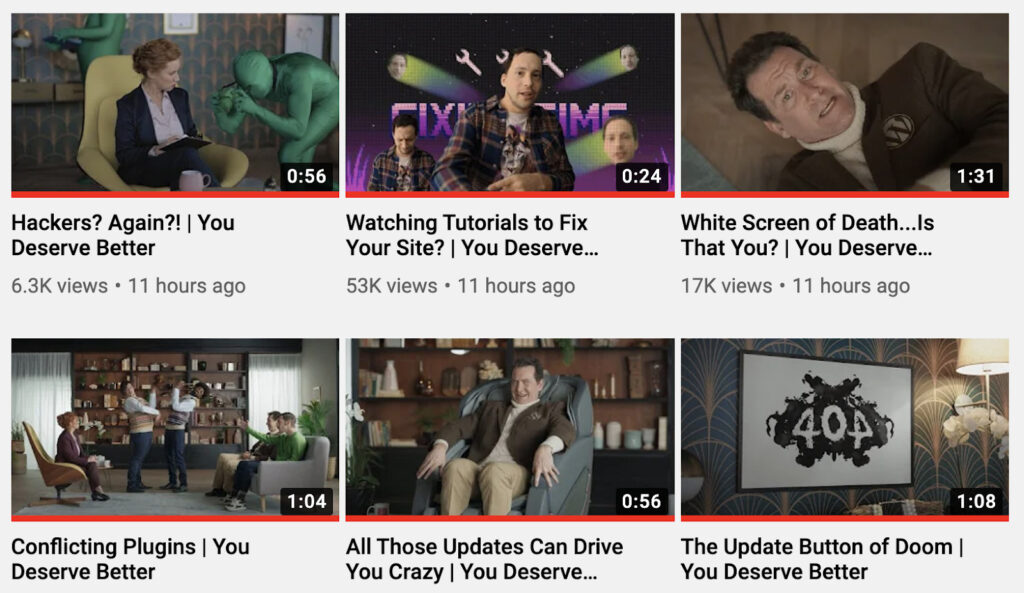
Wix also created a You Deserve Better page on their site.
When asked about the “You Deserve Better” campaign, a Wix representative said:
“The campaign shows in a clever way that WordPress users don’t need to be stuck in a bad relationship with their platform and they should consider the alternative which allows them to focus on their actual work. Each video in the campaign revolves around user pain points, which also highlight Wix’s strengths.”
Maya Gril, Wix Representative
However, especially following Wix’s headphone’s stunt, this campaign hasn’t gone over well with those people who were gifted the Bose headphones.
Let’s discuss why.
Newsletter Sign up!
Get our best content on digital marketing in your inbox 2 times a month
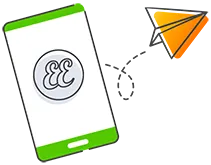
What Wix Did Wrong
How Wix’s “You Deserve Better” campaign went wrong can be boiled down to three points:
- Wix didn’t understand their audience
- Wix didn’t market its strengths enough
- Wix made people feel bad
1. Wix Didn’t Pick the Right Audience
Wix’s intended audience for this ad campaign was clear: WordPress power users. However, Wix would have been more successful if they had marketed to prospective customers who were figuring out how to get their website built, agnostic to the platform.
Wix was unable to successfully market to this audience because many of them (including those they sent the headphones to) are long-time contributors for WordPress or run WordPress product businesses — they’re locked in!
Also, Wix is the only CMS in the world that doesn’t allow export: “Your Wix site and all of its content is hosted exclusively on Wix’s servers, and cannot be exported elsewhere.”
Many developers do not want to bring their customers to a CMS that locks in their content, making it challenging to export it to other platforms. Pragmatic developers asked themselves, “What if Wix goes belly up next week? What happens to my client’s websites?“

Figure Out Your Buying Persona
Wix hoped to get more agencies and WordPress power users to make the switch, but they were speaking to the wrong audience aka persona. These people have built their entire businesses and careers around WordPress.
Instead, Wix could have gone all in on targeting business start-ups or small businesses using a strong inbound marketing approach. While Wix has a great blog, they could lean in more to become the authority on how best to start a business with video tips, social media posts and more SEO content.
They could have created content around helping entrepreneurs start up their business, and build their website on Wix. Think of how American Express targets businesses and is known as the business credit card.
Wix could have created resources for small businesses, helpful guides that other companies could leverage for their customers to help expand Wix’s visibility with start-ups.
Their inbound marketing strategy could have included a strong SEO foundation, helpful articles, blogs, ebooks and webinars. They could have become the authority on how to start a business and have been able to sell a large majority of these startups their products by building trust with them first.
And, they could have approached this like pharmaceutical companies who persuade the patients to ask for the drugs from their doctors. If enough of these start-ups started demanding their website be built on the Wix platform– then more agencies would cater to these requests, and Wix would ultimately accomplish what it set out to do:
To get more professionals to build websites on their Wix platform, even if they preferred not to!
Newsletter Sign up!
Get our best content on digital marketing in your inbox 2 times a month

2. Wix Didn’t Talk About their Strengths Enough
When customers have a problem, they look for a solution. In the series mentioned above, Wix spent most of the time focusing on how frustrating WordPress can be for its users. They rarely talked about what Wix has to offer or how Wix would perform these tasks with ease.
How can someone decide if they want to use your services if you spend all of your time talking about how incapable your competitors are?
Customers want to know what you can give them. You need to inspire them! You need to give them enough reasons to make a change.
Six days after the videos were released, Wix released a follow-up video called Let’s Talk About Wix in which one of the skit characters from the previous videos says:
“Some of you asked why Wix didn’t talk about itself yet, and it’s a great question. I do believe external growth begins by looking inward, so let’s put WordPress aside, and talk about Wix.”
Too little, too late! This follow-up video seemed like a desperate attempt to try to recoup the negativity surrounding Wix’s initial campaign. The video lists all of Wix’s services clearly — but Wix’s competitive services should have been outlined from the very beginning.
A lesson learned: Lean in on how your product or company can help. This doesn’t mean you need to come in huffing and puffing about how great you are. Instead: how is your service going to make their lives easier? How is your service going to save them money and time, or help with another pain point?
3. These Wix Ads Made People Feel Bad
Since Wix’s intended audience was existing WordPress users and influential contributors, you would think that they’d understand that their audience has strong loyalty to WordPress.
Wix’s approach to try to buy loyalty with a free gift, Bose headphones, and then start bad mouthing their competitor, just felt wrong and dirty.
Some existing WordPress users and contributors felt attacked and even felt as if they were being shamed for using WordPress. Who wants to be a part of something that’s thought of so badly? Even if people were complaining about WordPress, this campaign could have made them want to defend WordPress and actually become more of a WordPress advocate.
Human nature is funny that way. One day you’re complaining about something (or someone) and then the next day you’re their biggest supporter, willing to fight someone in the street over the criticism. Sometimes, the harsher you attack a competitor, the more fiercely its users will want to defend it.
This is why a bold negative campaign strategy was such a poor choice on Wix’s part — they didn’t properly consider how it’d make their audience feel.
But if anyone is asking, I would love a Bose headset 🙂
3 Reasons Why You Need a Strong Inbound Marketing Strategy

- Free Sales Downloadable
#WinMoreSales Sales Tips Sheet
Get quick, actionable tips on how to increase your sales win ratio.
Free Download
Just fill out the form below and we’ll send you a FREE copy of our #WinMoreSales sales tips sheet!
While inbound marketing has been around for over 10 years, it still needs a bit of explaining to make sure everyone is on the same page. If you’re putting the effort into positioning your organization as a thought leader then your company will not need to resort to negative scare tactics. We’ll also discuss the 3 reasons why your company needs to adopt this strategy, especially over negative advertising tactics:
- Customers want to know how you can help solve their problems
- Customers want to know you can give them something valuable
- Customers want an experience that’s tailored to them
What is Inbound Marketing Strategy?
Wix might have had a successful campaign if they had used inbound marketing. This graphic highlights all the different elements involved in an inbound marketing strategy. It’s not for the faint of heart, but it’s better than running an outbound marketing campaign and fail– so epically. Hubspot defines inbound marketing as:
“A business methodology that attracts customers by creating valuable content and experiences tailored to them. While outbound marketing interrupts your audience with content they don’t always want, inbound marketing forms connections they are looking for and solves problems they already have.”
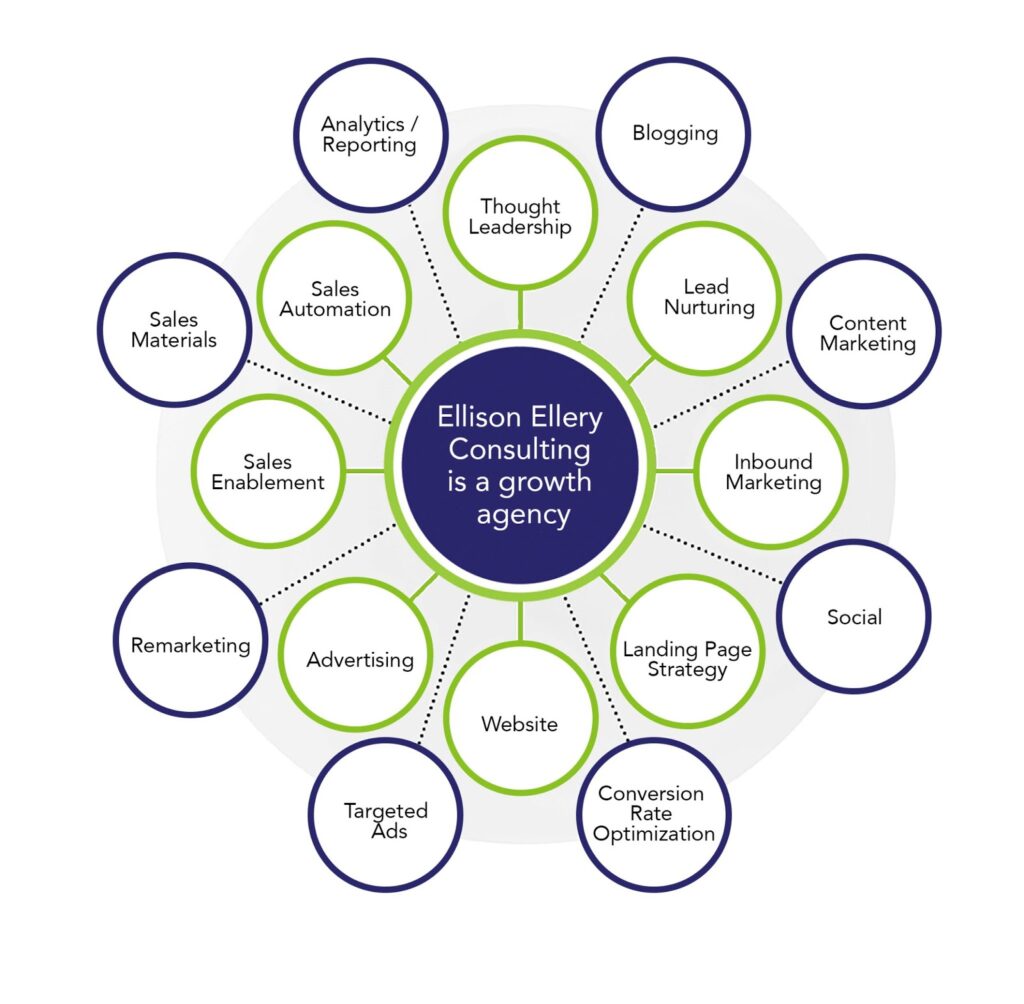
One of Wix’s main problems is pointed out in this definition: they interrupted their audience with content they didn’t want. They didn’t come to their audience and list all of the amazing things Wix has to offer — instead, they focused on attacking WordPress and used disingenuous means to win the affection of their audience, they tried to buy their loyalty with an unrelated gift.
Wix could have used inbound marketing to solve problems for those who needed solutions the most, like teaching small businesses how to use Wix to create a website, and launch their business.
Also, instead of slandering a competitor, they could have built up their own credibility by doing relevant and valuable webinars or by collaborating with famous influencers using Wix.
Although Wix failed to use inbound marketing, you don’t have to. Inbound marketing is one of the best ways to win over prospective customers.
Let’s take a look at how you can leverage inbound marketing for your business!
The 3 Steps of Inbound Marketing
Before we get into the 3 reasons why you need to start thinking inbound, here’s the 3 steps of the inbound marketing strategy:
- Attract: draw in your audience with valuable content that establishes you as a credible industry leader worth engaging
- Engage: present solutions that align with your audience’s pain points and goals
- Delight: after the purchase, continually support your customers so they continue to feel confident in their decision to work with you
Newsletter Sign up!
Get our best content on digital marketing in your inbox 2 times a month

You want to make sure that you’re following through with each step of this process to truly access the power of inbound marketing!
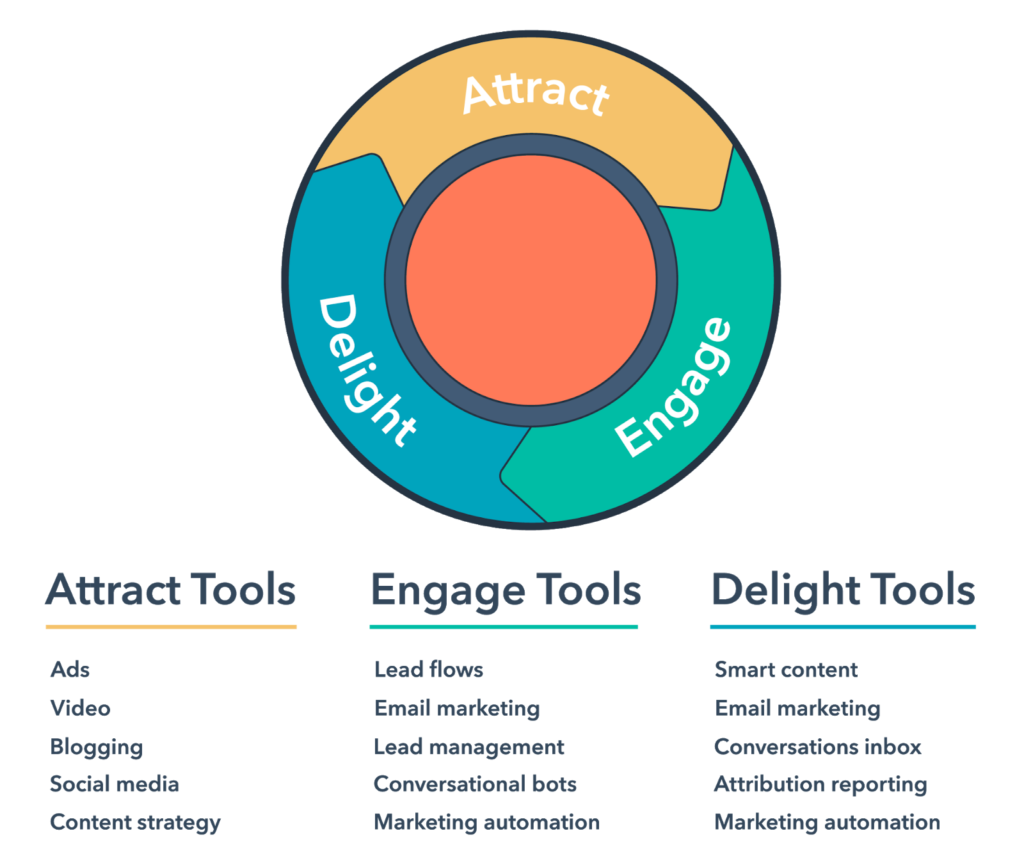
3 Reasons You Need a Strong Inbound Marketing Strategy
So, here’s 3 reasons why you need a strong inbound marketing strategy for your business:
Customers want to know:
- How you can help solve their problems
- You can give them something of value (don’t waste their time)
- You can provide a consistent experience that’s personalized to them
Let’s jump in.
1. Customers Want to Know How You Can Help Solve their Problems
Customers are looking for you to help solve problems they already have. It’s much harder to convince them to use your services if your services solve problems that aren’t significant to them!

That’s why it’s so important that you take the time to really nail down exactly who you’re trying to reach and find out what their pain points are.
This is where Wix went wrong; Wix didn’t speak to its buyer’s persona. Wix did want to build on the complaints people have about WordPress, but that didn’t solve anyone’s problem.
If you’re able to pinpoint your prospective customers’ pain points and advertise specific solutions, they’ll be more likely to use your services.
Going back to Wix’s campaign: this is one of the reasons why it flopped. Wix didn’t come out strongly saying what they can do.
Instead, they mainly focused on all of the things WordPress can’t do. They missed an opportunity to show people how their products can delight their customers.
Wix could have positioned its campaign around how these WordPress influencers could make more money using Wix, retain their clients better, and/or how they could grow their own businesses.
This is the model HubSpot uses. HubSport leans on partners and focuses on helping their partners grow. In turn, when their partners grow, HubSpot knows they can grow too.
Wix did do a good job of identifying some pain points. However, they didn’t swoop in to save the day. They let the audience sit in their pain, making matters even worse by making them feel embarrassed for choosing to use WordPress in the first place or defensive wanting to stand up for WordPress.
That’s not how you want your customers to feel!
2. Customers Want to Know You Can Give them Something Valuable
This step happens in the “Attract” stage of inbound marketing. It’s important that you make sure that your customers know from the very beginning that you can give them something valuable.
Give your prospective customers a taste of what they’ll be able to get by working with you. You can establish your credibility by generating content like:
- Blog posts
- Social media posts
- Content offers
- Product tutorials
- Provide resources to help the customer with other aspects of their business, outside of their website like payment processing, email marketing, SEO, website conversions, increasing revenue, etc.
- Customer testimonials
Tying this back into the Wix campaign: this campaign gave its audience a negative value. Wix barely told their audience what they could give them. Instead, they focused on all of the things WordPress can’t give them.
3. Customers Want an Experience That’s Tailored to Them
This step happens in the “Delight” stage. After a customer has decided to work with you or use your services, you need to make sure that they are continually delighted by working with you. And you can do this by creating an experience that’s tailored specifically to them.
One way you can do this is by having your team members assist them with their specific issues at any point in time. Make them feel supported!
You can also do this by incorporating chatbots or surveys into their experience to get some genuine feedback. Make sure they know that their experience matters and is taken into account in your business’s operations.
We Can Help You Create a Strong Inbound Marketing Strategy!
Want to delight your prospects? We can help.
Ellison Ellery Consulting is an inbound marketing and growth agency that helps companies use powerful storytelling and effective communication to generate and nurture leads. We have over 20 years of B2B and B2C experience.
Ellison Ellery began as a higher education marketing agency, and as our referrals grew, so did the verticals we serve, including: SaaS, hospitality, non-profits, healthcare, manufacturing, and more.
No matter where you are in your marketing journey, we can help. We’re certified in inbound marketing, and are sales and conversion optimization experts. We can help with CRM integration, ensure you’re using your CRM and email to grow your leads, and convert more leads into sales.
Our Services include:
- Storytelling + branding
- SEO
- PPC
- Website development
- Sales enablement
- Email Marketing
- Automation
- Lead generation and nurturing
- Fractional CMO
- Website Chatbots
- Sales automation
- Qualitative studies
- Secret shopping your marketing and sales process
Partner with us to grow revenue, improve conversions, and get more out of CRM and your marketing efforts!
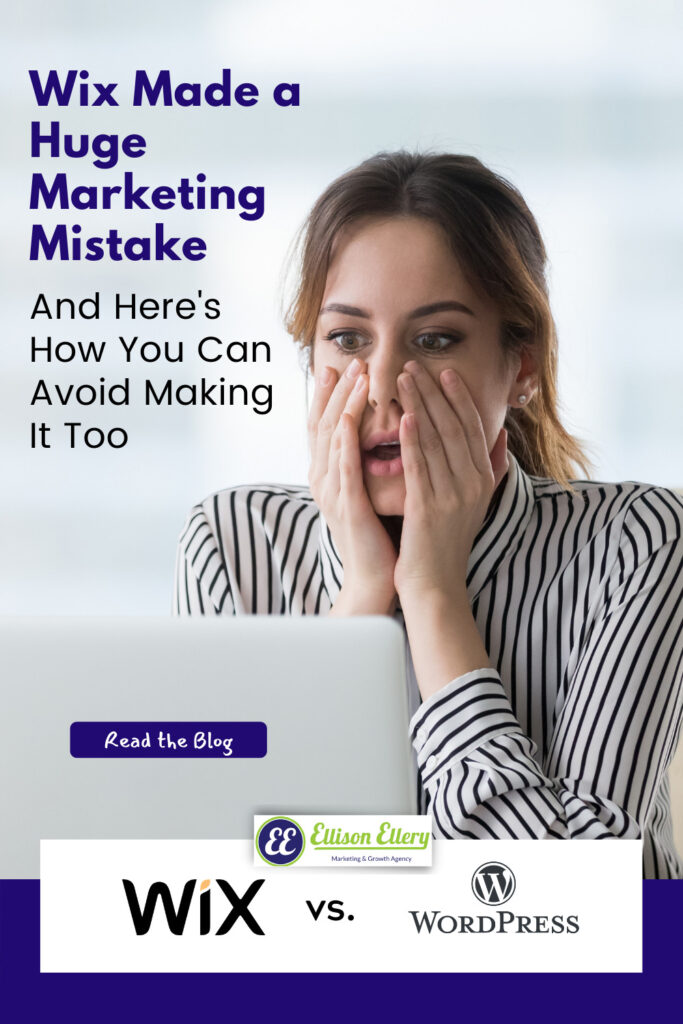

How are your marketing efforts contributing to your company’s growth?
Schedule a brief discovery call to receive a complimentary consultation for your business.





